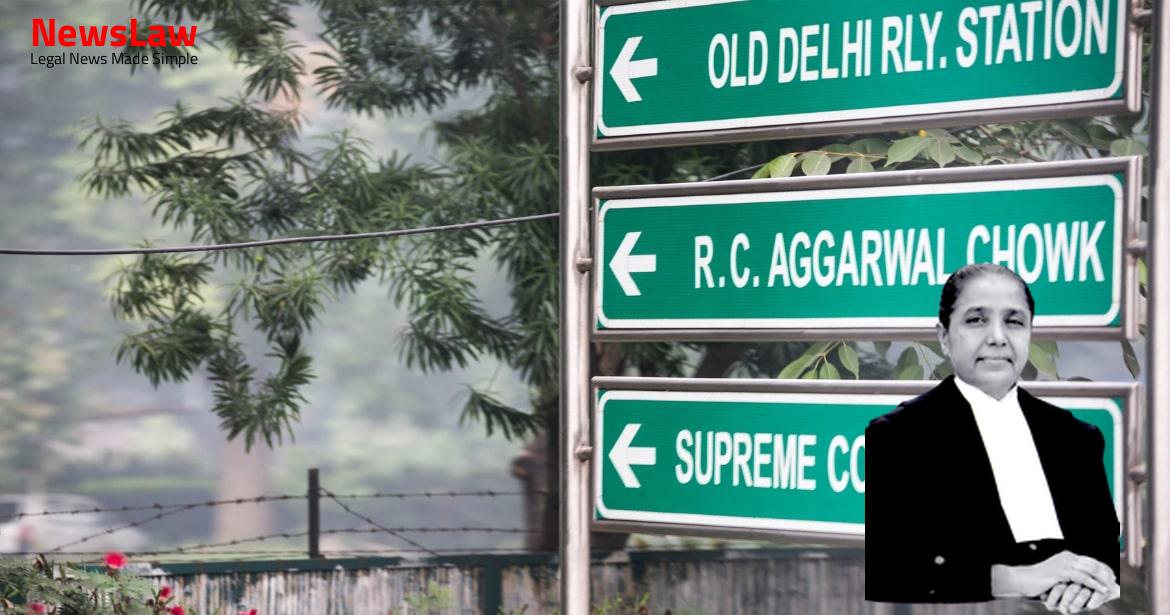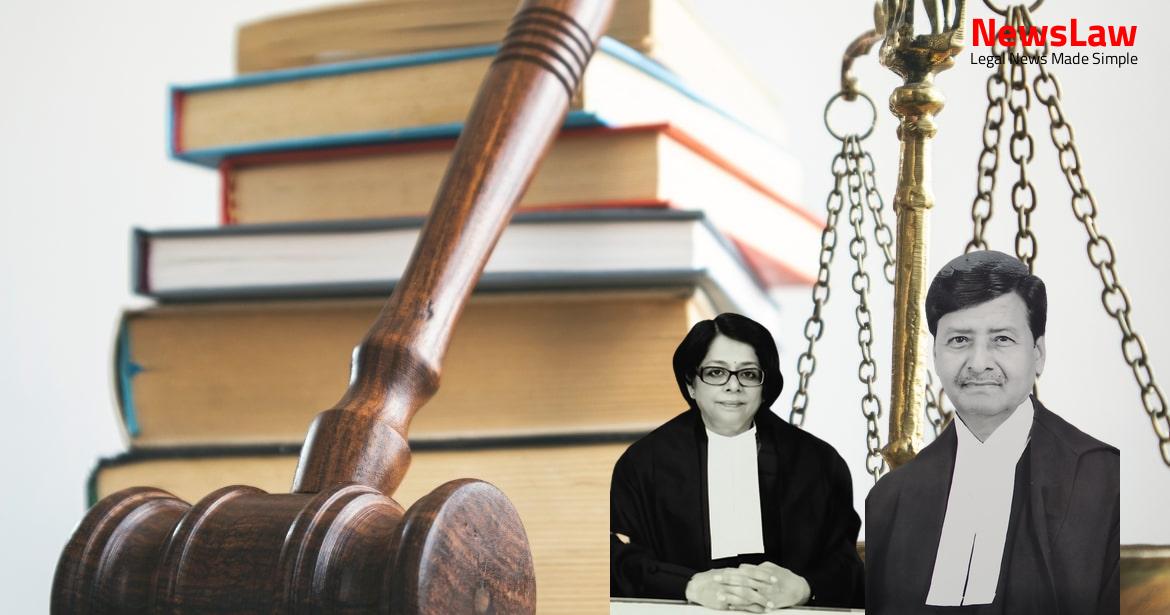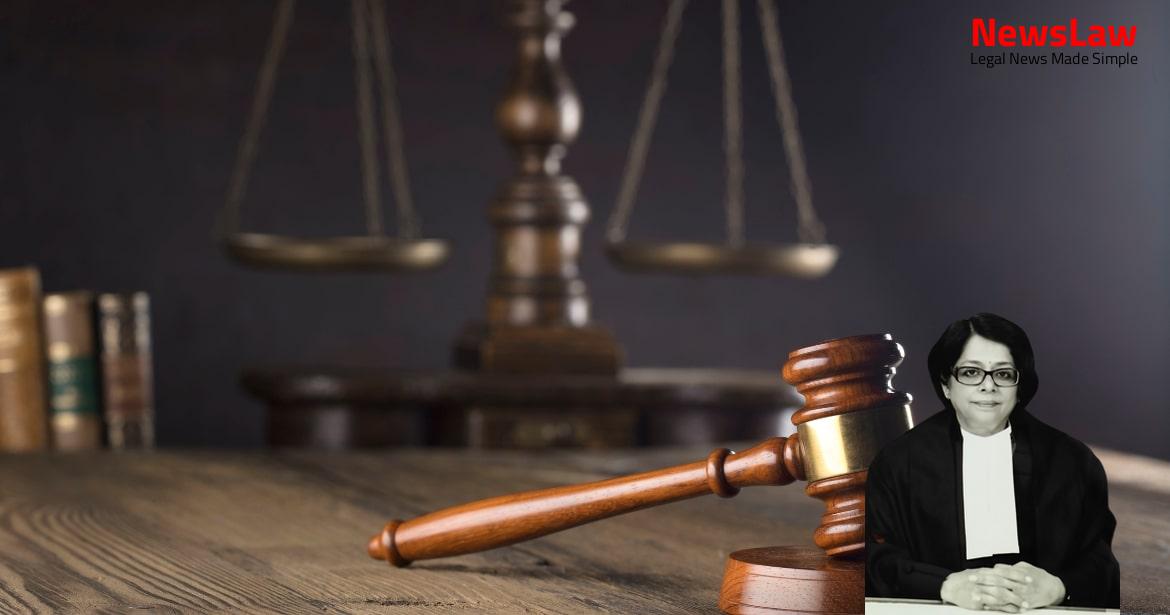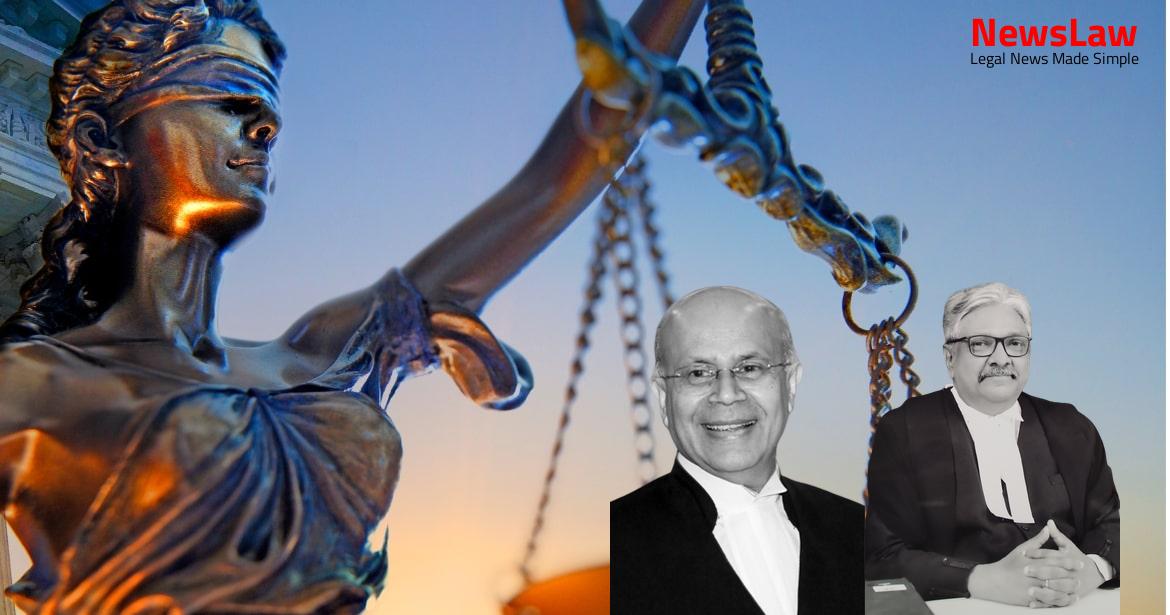In a significant legal development, the Supreme Court of India has issued a judgment in the case concerning Gopal Saran versus the State of Madhya Pradesh. This case has captured widespread attention due to its complex legal nuances and intricate details. The court’s decision marks a crucial milestone in the pursuit of justice and upholding the rule of law.
Facts
- Gopal Saran did not return home by midnight on the mentioned date.
- Bhawna Bai, the appellant, tried to contact him but he did not answer.
- Appellant informed her father-in-law and they searched for Gopal Saran.
- Neighbours informed the family that Gopal Saran was found in a tank/hose in the field of Ghanshyam.
- Appellant filed for anticipatory bail which was granted by the Supreme Court.
- Charge sheet was filed against the accused under Section 302 IPC read with Section 34 IPC.
- Complaint was made to the Superintendent of Police when no action was taken.
- Allegations were made that Ganesh prevented the appellant from approaching her husband.
- Post-mortem was allegedly conducted without informing the appellant.
- Complaint was filed under Section 156(3) Crl.P.C. before the ACJM.
- State of Madhya Pradesh filed a revision challenging the direction to register FIR which was dismissed.
- High Court granted anticipatory bail to the accused.
- Appeal was filed against the High Court’s decision to quash the charges framed by the trial court.
- The Second Additional Sessions Judge found sufficient grounds for proceeding against the accused and framed charges under Section 302 IPC read with Section 34 IPC.
- The accused filed a revision before the High Court challenging the order of framing charges.
- The High Court quashed the charges against the accused and discharged them, stating that the trial court failed to apply its mind while framing charges.
Also Read: Judgment Review: Supreme Court’s Ruling on the Capital Punishment Appeal
Arguments
- Mr. Bijan Kumar Ghosh, learned counsel for the appellant, argued on various circumstances connecting the accused with the death of Gopal Saran.
- Circumstances mentioned include ‘last seen together,’ ‘recovery of dead body,’ ‘delay in informing the family of the victim,’ and ‘recovery of other belongings including a tractor.’
- These circumstances led the Second Additional Sessions Judge to believe that there are sufficient grounds to frame charges against the accused.
- Accused Ghanshyam and Bhagwan were last seen with deceased Gopal Saran before the occurrence.
- The accused-respondents were alleged to have consumed liquor with the deceased at the farm on the day of the incident.
- Statements from Ghanshyam’s wife and daughter place the accused-respondents at home at 09:00 pm on the night of the incident.
Also Read: The Ruias v. MHL: Landmark Supreme Court Judgement
Analysis
- The court’s duty at the initial stage is to consider the record of the case and hear both the accused and prosecution before framing charges.
- Sections 227 and 228 of the Code of Criminal Procedure differ in their nature of opinion given by the court.
- The judge must determine if there is a sufficient ground for presuming the accused committed the offense before framing charges under Section 227.
- Only a prima facie case needs to be seen at the charge framing stage, not proof beyond reasonable doubt.
- Strong suspicion alone cannot replace proof of guilt; a mere suspicion is insufficient for proceeding with a trial.
- The judge is not required to record detailed reasons for framing charges under Section 228, only a prima facie case against the accused needs to be seen.
- The final test of guilt is not to be applied at the initial stage of framing charges; the ultimate judgment on guilt is reserved for later stages.
- A mere strong suspicion that the accused committed the offense is sufficient at the charge framing stage to proceed with trial.
- The court’s satisfaction regarding the elements of the offense and the facts leading to it is crucial for jurisdiction at the charge framing stage.
- The presumption of guilt at the initial stage is not the same as the presumption used in the French legal system.
- Initial presumption of guilt is based solely on prima facie evidence, and does not require a detailed enquiry or elaborate evidence evaluation.
- The court must focus on the existence of the offense’s constituents and the facts leading to it while framing charges, without delving into a detailed evaluation of evidence.
- The order framing charges does not need to be detailed and should not consider the potential defense of the accused.
- The truth and effect of the prosecutor’s evidence are not meticulously judged at the initial stage; it may even be weaker than a prima facie case.
- If the Judge finds ground for presuming the accused has committed an offence exclusively triable by the court, a charge must be framed in writing against the accused.
- The public prosecutor is responsible for opening the case before the Sessions Court by stating the charge against the accused and presenting the evidence to prove the guilt.
- Section 227 of the Criminal Procedure Code deals with discharge of the accused. If the Judge determines there is insufficient ground for proceeding, the accused shall be discharged with reasons recorded.
- Under Section 226 of the Code, the prosecutor must describe the charge against the accused and state how he intends to prove the guilt.
- In Amit Kapoor v. Ramesh Chander, it was held that detailed reasons for framing a charge under Section 228 of CrPC are not necessary.
- The judge is not required to record reasons for framing charges under Section 228 of CrPC in Knati Bhadra Shah case.
- The court must consider the record of the case and documents submitted, and after hearing the parties, can either discharge the accused under Section 227 or frame charges under Section 228 if there is ground for presuming the accused has committed an offense.
- The learned Second Additional Sessions Judge found sufficient grounds to proceed against the accused based on the allegations and charge sheet.
- The charges were framed against the accused under Section 302 IPC read with Section 34 IPC.
- The High Court erred in interfering with the trial court’s order of framing charges against the accused.
- The High Court’s decision to quash the charges framed against the accused was deemed incorrect.
- The impugned judgment of the High Court dated 25.02.2019 was set aside, and the appeal was allowed.
- Sessions Trial Case No. ST/150/2018 is restored, and the matter is to be proceeded with by the Second Additional Sessions Judge in Mandleswar, West Nimad, Madhya Pradesh.
- The court clarified that no opinion on the merits of the matter was expressed.
Also Read: Judgement on Arbitrator Appointment Dispute: Clauses 64(3)(a)(ii) and 64(3)(b)
Case Title: BHAWNA BAI Vs. GHANSHYAM
Case Number: Crl.A. No.-001820-001820 / 2019



